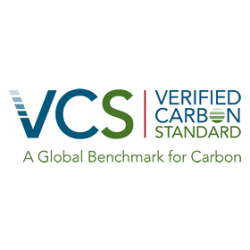Verified Carbon Standard
The VCS Program is the world’s most widely used voluntary GHG program. More than 1500 certified VCS projects have collectively reduced or removed more than 200 million tonnes of carbon and other GHG emissions from the atmosphere.
Individuals and corporations around the world are recognizing the importance of reducing their GHG emissions. As a result, many of them are reducing their carbon footprints through energy efficiency and other measures. Quite often, however, it is not possible for these entities to meet their targets or eliminate their carbon footprint, at least in the near term, with internal reductions alone, and they need a flexible mechanism to achieve these aspirational goals. Enter the carbon markets.
By using the carbon markets, entities can neutralize, or offset, their emissions by retiring carbon credits generated by projects that are reducing GHG emissions elsewhere. Of course, it is critical to ensure or verify, that the emission reductions generated by these projects are actually occurring. This is the work of the VCS Program – to ensure the credibility of emission reduction projects.
Once projects have been certified against the VCS Program’s rigorous set of rules and requirements, project developers can be issued tradable GHG credits that we call Verified Carbon Units (VCUs). Those VCUs can then be sold on the open market and retired by individuals and companies as a means to offset their own emissions. Over time, this flexibility channels financing to clean, innovative businesses and technologies.
Verra’s role is to develop and administer the program. We provide oversight to all operational components of the VCS Program and we are responsible for updating the VCS rules such that they ensure the quality of VCUs. The development of the VCS Program is supported by the VCS Program Advisory Group, a multi-stakeholder body that helps ensure that the VCS Program continues to serve its users in an effective and efficient manner and drives practical and robust solutions to mitigate climate change.
How It Works
Projects developed under the VCS Program must follow a rigorous assessment process in order to be certified. VCS projects cover a diverse range of sectors, including renewable energy (such as wind and hydroelectric projects), forestry (including the avoidance of deforestation), and others. Emission reductions certified by our program are eligible to be issued as VCUs, with one VCU representing one metric tonne of greenhouse gas emissions reduced or removed from the atmosphere.



